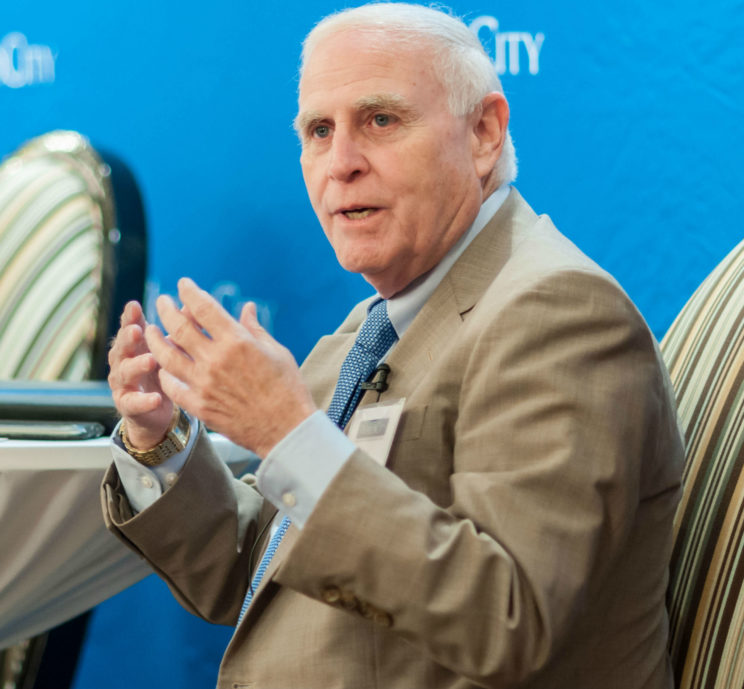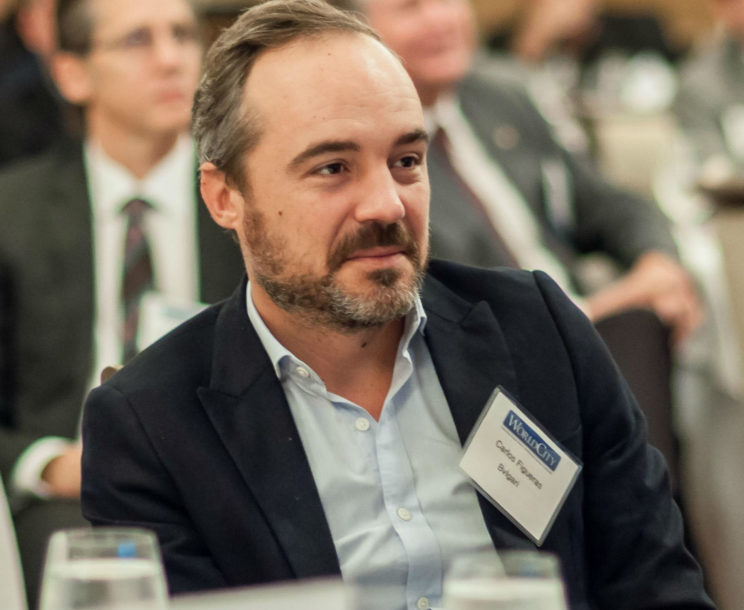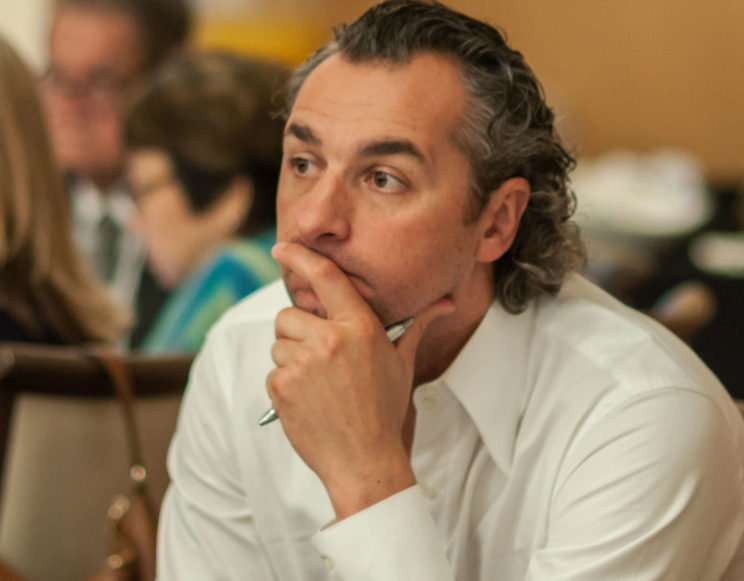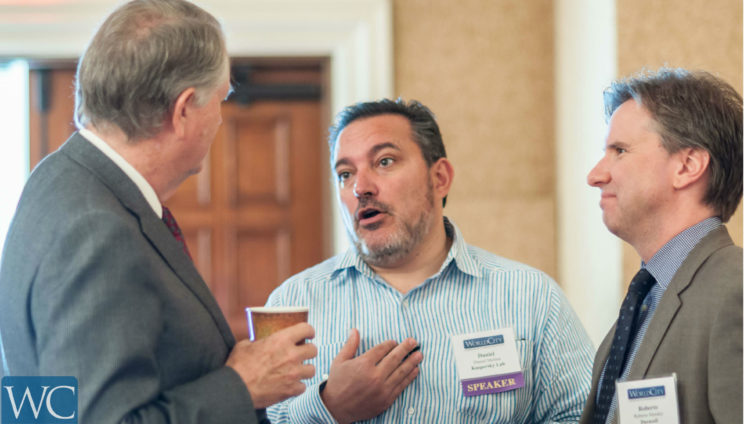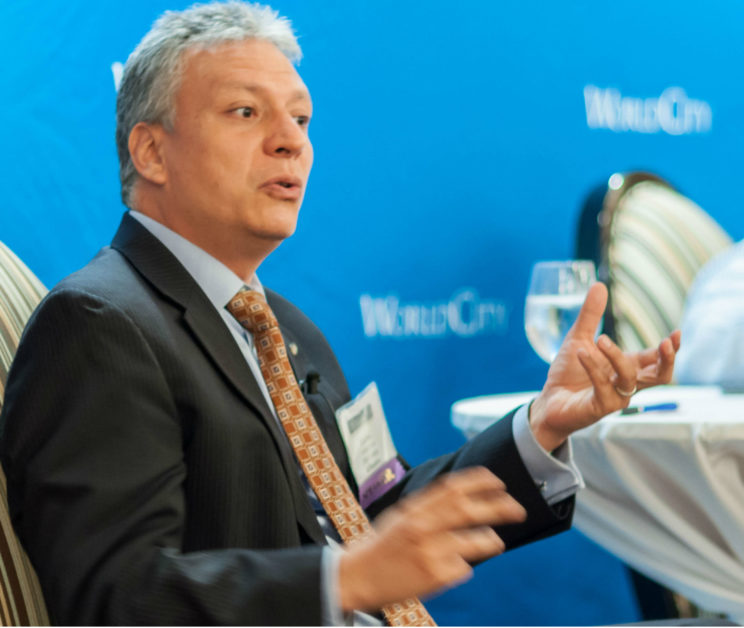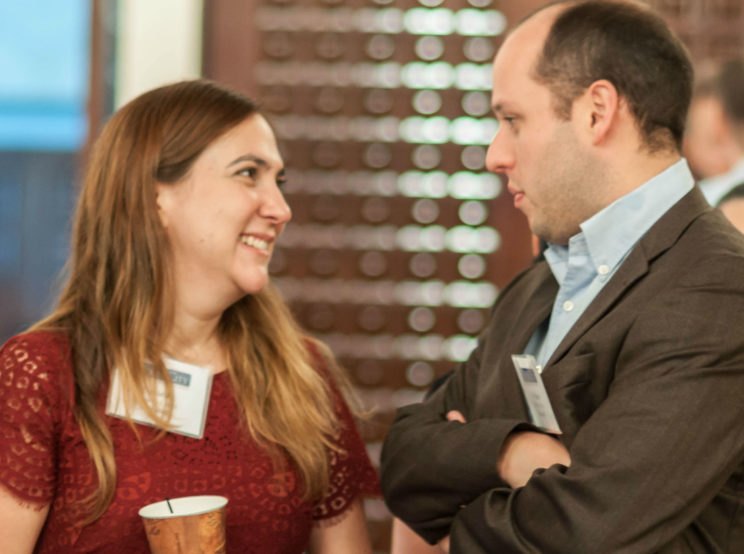Business with Cuba still no easy road
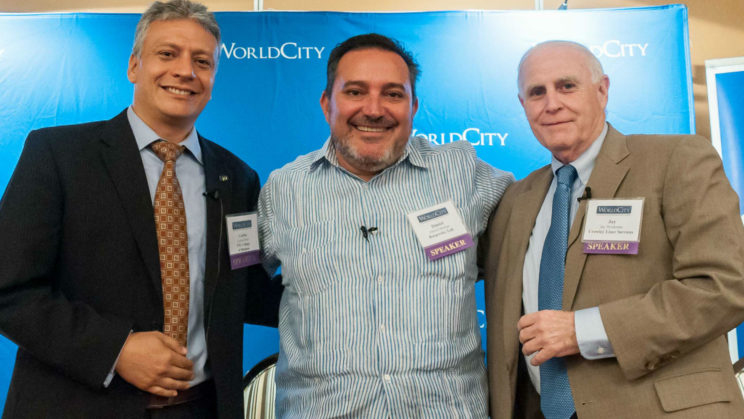
Panelists: Carlos Parra of FIU, Daniel Molina of Kaspersky & Jay Brickman of Crowley Liner Services.
Rarely a week goes by without new rapprochements between the United States and Cuba, from the OK for Cuban-born U.S. citizens to cruise to the island to the launch of commercial flights and Cuban TV shows airing stateside.
Still, despite President Barack Obama’s decision to normalize relations with the communist-led nation, doing business on the island remains challenging. Rules in a state-run economy take some getting used to – as does the island’s sometimes questionable infrastructure.
Meanwhile, Cuban entrepreneurs are eager to try their hands at startups, but are still feeling their way forward when it comes to business basics.
That was the message from three experts who spoke at WorldCity’s Global Connections event held June 24, 2016, at the Coral Gables Country Club.
Sharing his experience was Jay Brickman, vice president of Government Services for Crowley Liner Services, which has done business in Cuba for more than a decade among its Americas operations.
He was joined by Daniel Molina, managing director, Strategic Latin America, at Kaspersky Lab, which as a Russian-headquartered firm, has a long-established relationship with Cuba.
The third panelist was Carlos Parra, Florida International University professor in the Department of Information Systems and Business Analytics and in the Department of Marketing. He is helping lead an innovative six-week program, InCubando@FIU, that this spring brought 15 Cuban entrepreneurs for training at FIU. All of the Cubans are under 40 years old and have operated their government-licensed businesses for at least a year.
U.S. embargo on Cuba not the only business issue
“When do you think the embargo will end?” WorldCity CEO Ken Roberts asked both the speakers and audience, well-sprinkled with Cuban-born Miamians and the children of Cubans. Roberts gave them a suggested range of one year, five years or 10 years. Five years was the consensus from the podium and the attendees.
The United States is the only country worldwide that maintains an embargo on Cuba, a holdover from the Cold War.
“I think with Cuba it is more complicated,” said Brickman. “Two governments have to say there will not be an embargo.” Brickman has a seasoned understanding of doing business in Cuba — his company has been delivering poultry, mostly chicken, to Cuba, since 2001.
Kaspersky is also familiar with the island’s unique business climate. Molina noted that the anti-virus company has witnessed Cuba’s Internet security landscape transform. Earlier, most computer viruses arrived via thumb drives.
With increased Internet access, “now we are starting to see more normal viruses coming to Cuba,” he said.
Parra gave a snapshot of the entrepreneurs in the InCubando@FIU program. “They are very excited about what they are doing,” he said. Of the 15, six are women, several have some business training; most have Miami connections.
The hope is, he added, to continue and expand the program, making changes to reflect changes on the island. “We think this is a long-term effort,” he said. “We need to calibrate the tools and strategies we are giving them so it makes a difference to their business.”
Forget the hard-sell; build relationships in Cuba
Still, noted Brickman, it’s just the dawn of relations between Cuba and the United States.
“Trade between the U.S. and Cuba is at its earliest stages,” he said. Brickman also noted that Cuba reserves the lion’s share of the economy – 85 percent — to central planning, which has a strong impact. “It’s not just a question of ‘I want to do this,’ ” he said. People have to consider how to finance the enterprise, international trade patterns and other matters. “Anybody who is interested in Cuba at this point, it’s not just ‘what do I have to sell in Cuba?,’ ” but rather a question of building relationships and networks, creating a conduit for introducing goods and services.
Still, noted Molina, “You can’t put the genie back in the bottle.” What begins as small steps tend to gain speed, and reversing course becomes difficult. “A few years ago, people were selling Internet access in the park,” he said. Now, a growing number of people have smart phones — especially those with access to U.S. dollars.
“It seems like the U.S. embargo is a big hindrance,” said Alan Griffin, vice president, consulting services, Right Management. “Is there any attempt to change this embargo?”
Replied Brickman: “Right now it’s an interesting question,” noting that there are Senate initiatives currently underway seeking ways to circumvent the embargo. “Now is the time to talk to your senator and congressman.”
Private entrepreneurship blooming in Cuba
Audience members wanted to know more about the slice of the economy the Cuban government allows in private hands.
It’s more diverse than people might think, Parra said, noting that a pizza shop owner, fly fishing trip operator and a financial services firm serving people who want to invest in Cuba are among those in the FIU program.
According to a recent Congressional Research Service paper on Cuba, the state now allows private enterprise in roughly 200 job categories, and the number of people licensed for those jobs reached about 500,000 in 2014, up from 156,000 at the end of 2010.
“At the end of the day, what I think is most important right now is infrastructure,” said Cesar Ruiz, principal senior managing director, AXIS Realty Partners. “We are talking about roads, water and sewer, the basics.” What, he asked, is happening on that front?
The panelists said that while infrastructure is not where it needs to be, progress is being made. “It’s important to keep in mind,” said Brickman, “Cuba has 11 million people who have been trading with the rest of the world.”
Global Connections is one of four event series put on by WorldCity to bring together executives in greater Miami on international business topics. The Global series is sponsored by Florida International University’s College of Business and by Audicom Productions.
The next Global Connections, “Mobility: Companies Riding the Wave,” is set for July 29.
